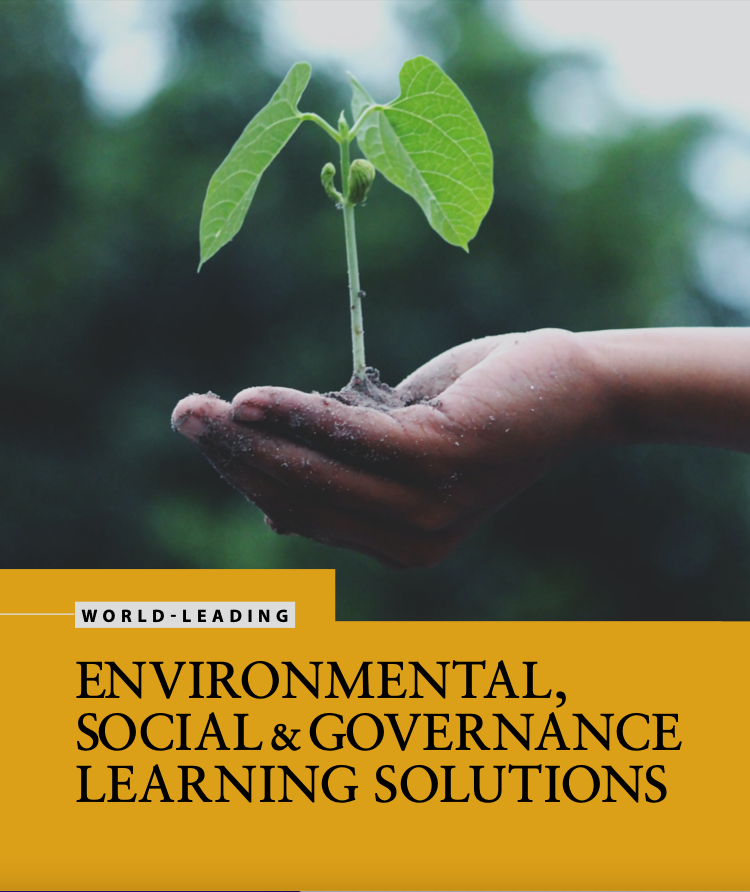ESG and ROI
Measuring the impact of ESG initiatives is a major challenge for businesses. They must develop metrics to track progress and demonstrate ROI to stakeholders. However, implementing ESG initiatives may necessitate significant changes to a company's strategy, culture, processes, and operations. This can be difficult to achieve and may face resistance from stakeholders.
Professor Christopher Marquis stressed that taking a wider view is not only good for the performance of the firm long-term but also the world in general and Gemma Butler, co-founder of Can Marketing Save the Planet, emphasised that ESG should be embedded in an organisation's core strategy from the beginning.
By prioritising ESG in the core strategy, organisations can ensure that they focus on all stakeholders, not just shareholders and the bottom line. This not only promotes a culture of reporting and measuring for ESG but also defines the company's future vision.
However, some organisations might use the excuse that they are unable to measure their ESG initiatives. There are several methods already in place that a company can start with, such as
- ESG ratings: ESG ratings are provided by specialised rating agencies. They evaluate organisations based on a range of ESG factors and assign them a score or rating.
- ESG indices: ESG indices are stock market indices that track the performance of organisations based on their ESG performance.
- ESG data providers: ESG data providers collect and analyse data on ESG factors, which can be used by investors, asset managers, and other stakeholders to evaluate a company's ESG performance.
- Self-assessment: Organisations can conduct their own ESG assessments and report on their performance using frameworks such as the Global Reporting Initiative (GRI), B Corp or the Sustainability Accounting Standards Board (SASB)
Overall, measuring ESG ROI involves more than just a financial review, organisations need to be evaluating the impact on the environment, its treatment of employees, suppliers, and customers, and its governance practices.
The Cost of Inaction: Organisations and Leadership
The absence of action and commitment towards sustainability from organisations and their leadership can have negative consequences for the long-term success of the business. In today's world, consumers, investors, and other stakeholders are increasingly looking for organisations to operate sustainably and responsibly.
Professor Christopher Marquis commented “The next decade is going to be a game-changing decade in ESG, and one important reason why is this new EU law CSRD - Corporate Sustainability Reporting Directive, by the end of this decade, it will apply to all organisations that do business in the EU. So, in America…there is a lot of pushback against ESG and I think America will continue to lag on that, but if American organisations want to do business with organisations in the EU, they are going to have to follow the EU ESG mandates…. So these new regulations by the European Commission are hugely important to drive ESG over the next decade”
When organisations fail to take ESG seriously, they risk reputational damage, loss of customers, regulatory fines, and even legal action. Moreover, ignoring ESG can lead to negative impacts and far-reaching consequences for future generations.
According to Professor Christopher Marquis, "The thing that really gets a company's attention is not when you put forward a proposal, but when you take it to the directors themselves and say if you do not walk the talk, you are going to be out of a job. Investors hold that power, and if they are going to talk about how important it is, they need to act on it." Ultimately, organisations that prioritise ESG are more likely to succeed in the long run, both in terms of financial performance and their impact on society and the planet.
Ruth Knight, Head of Climate and Sustainability, English Heritage also highlighted “The risk of inaction is so high it will be a distinguishing point between companies and organisations that take the time to have those conversations now and those who don’t, because if you don’t think about the future and the impact that will have on your own organisation's resilience, you're not being responsible, you're not thinking about the long term sustainability of the company in general in every sense – and that has to be essential because that cost of inaction is so high.
Communicating Sustainability: The Importance of ESG
Investors, customers, and employees are increasingly demanding that organisations take a proactive approach to ESG issues.
Goran Mazar, Partner, EMA & German Head of ESG at KPMG, emphasised the need to "go into the conversation with the decision-makers in politics, in business, and in other stakeholder groups to drive the change. It's one thing to have a vision, but then we need to have very concrete actions…. We need to build the right transformation... winning hearts and minds. It is a transformation, like the industrial transformation, the digital transformation, now we are going through the ESG transformation."
Effective communication of a company's sustainability credentials requires a comprehensive and transparent approach. This involves disclosing information about the company's ESG performance, including its goals, strategies, and progress towards achieving them.
Judith Wallenstein from BCG (Boston Consulting Group) highlighted how they were integrating their ESG practices into its operations and measure targets “If you look at our own targets it is a 92% planned reduction in scope 1 and scope 2 by 2025. We take 2018 as our baseline and our goal is to reach NET Zero by 2030” She continued “We track it at an office level, as a system level – which can be a cluster of offices, but also individually....I get a monthly dashboard...so there is a lot of individual reinforcement”
Only by engaging with stakeholders will organisations make a real change – organisations need to show how they are managing ESG risks and opportunities, as well as its impact on society and the environment.
Organisations that prioritise ESG and sustainability are better positioned to build long-term value and trust with their stakeholders. If you would like to find out more about how Cambridge Judge Business School, Executive Education can assist your organisation in developing ESG practices contact us today.

.png)

